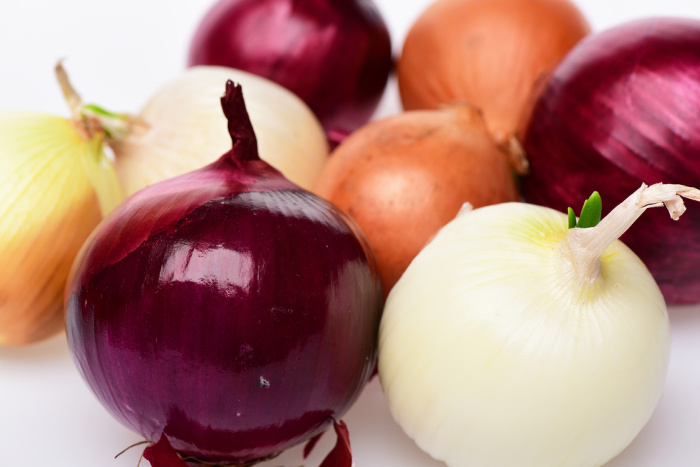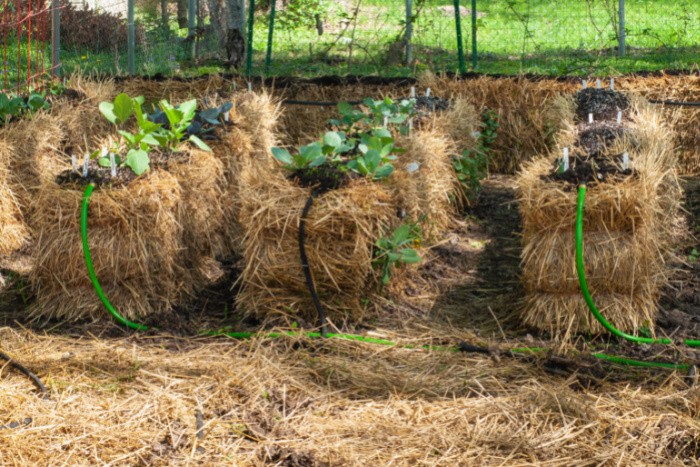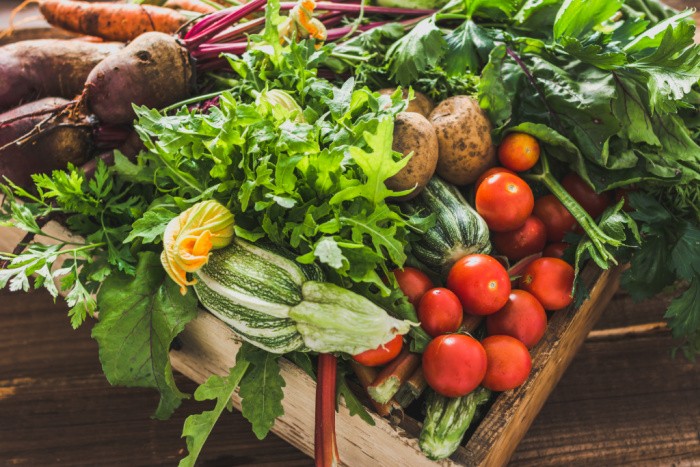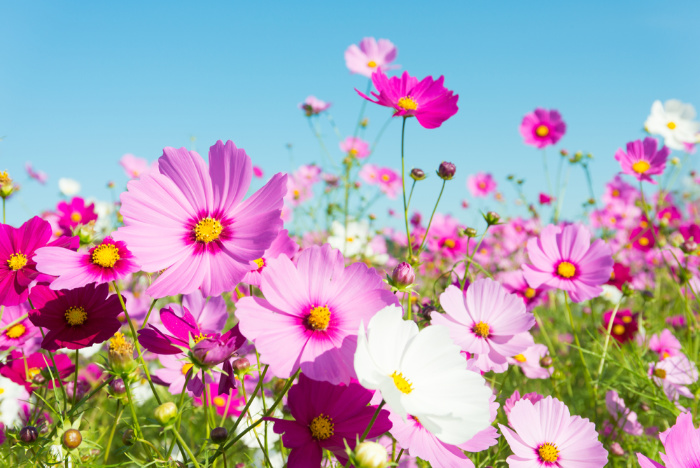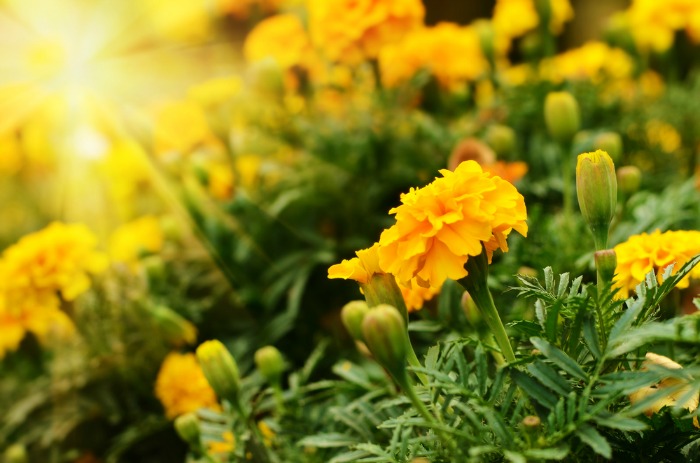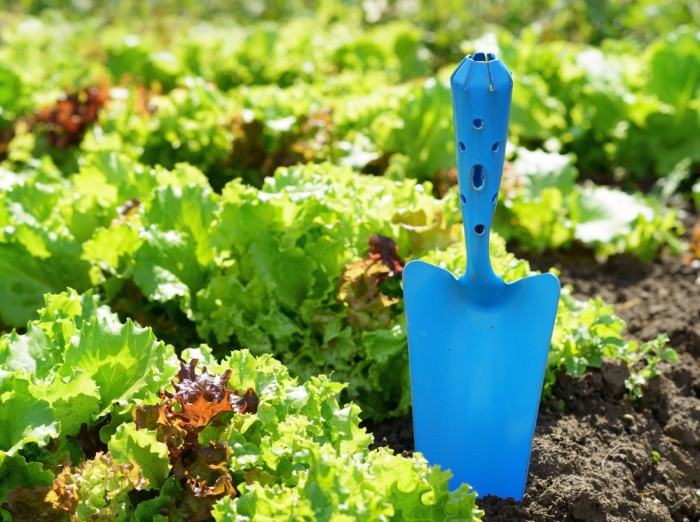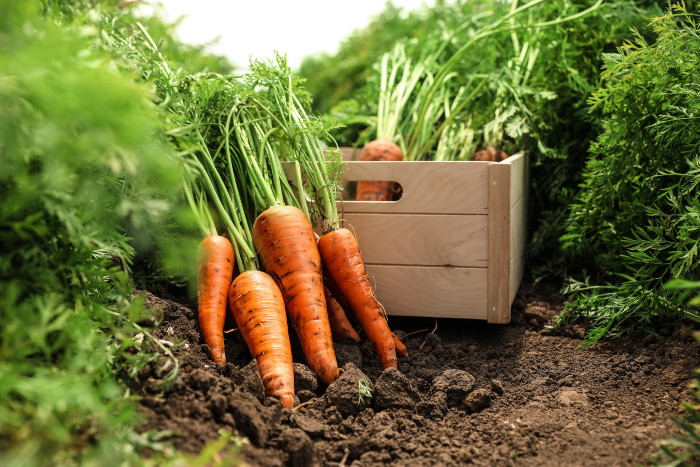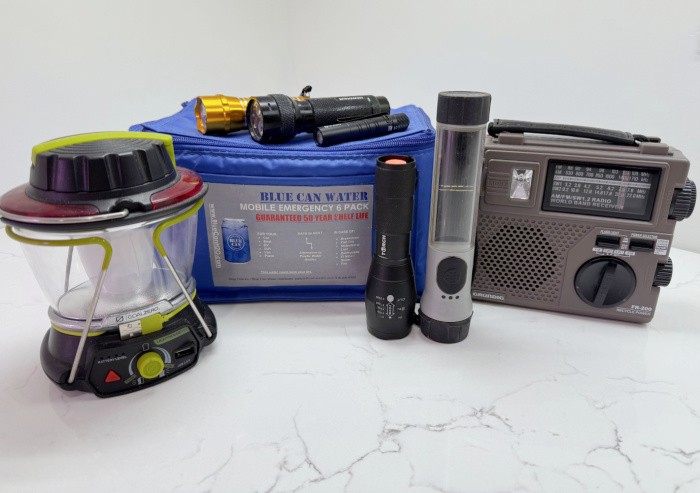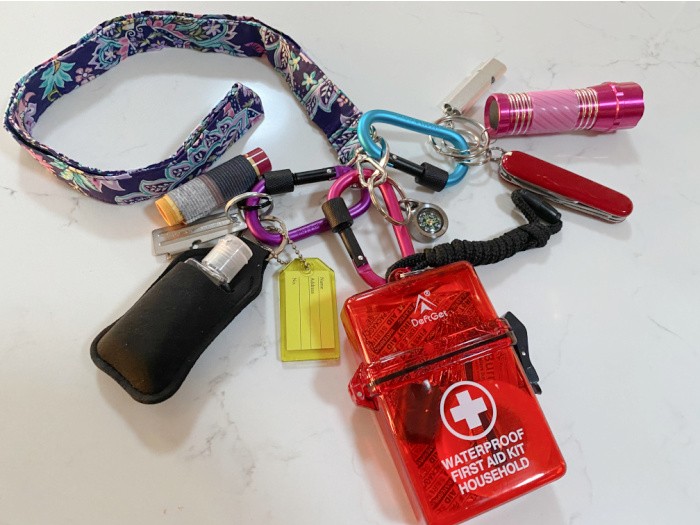Everything You Should Know About Growing Onions
When it comes to growing onions, they are super easy! If you desire to grow onions, there are some things you’re going to need to know. They are usually planted in the early spring and then harvested in the fall.
Whether you want to know how to plant, grow, or harvest them, these tips are for you! Learning how to prepare your garden for spring, starting with onions.
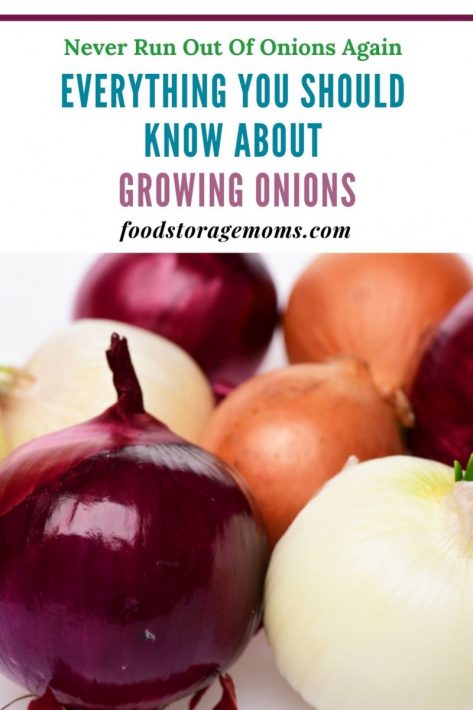
How to Plant Onions
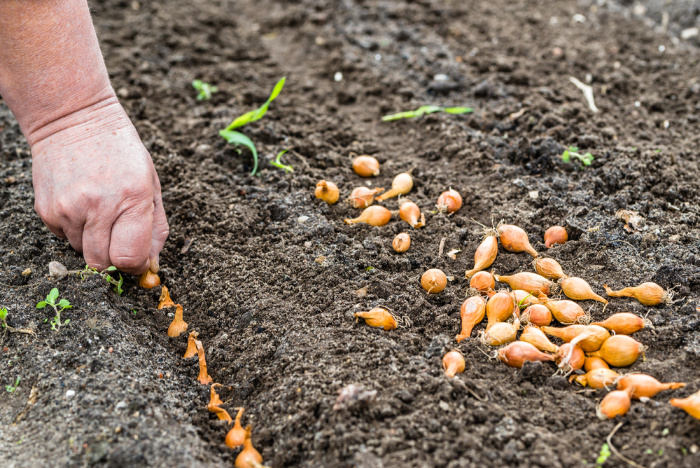
The first stop is how to grow this veggie. Yes, it’s a veggie! To begin the process of growing onions, you’ll want to wait until March.
Wait Until March
I like to wait until around March or April to plant onions because this seems to be the best time. The ground is warm and it’s not getting super cold anymore.
Give Them Full Sun
Those onions of yours can’t grow without sun, so make sure you plant them in a location that has full sun! This may take some time to understand where to plant, but you’ll figure it out soon enough.
Don’t Shade Them with Other Plants
Another hint for watching onions grow is to not shade them with other plants. In other words, onions need their own space and shouldn’t be crowded with other plants. Bunching onions are NOT a good idea.
Leaf Crop
When someone thinks of spring onions, they think that they are more of a root crop. However, they’re more of a leaf crop. Onions should not be buried more than 1 inch under the soil.
Growing Onions
Are you wondering how to grow onions? There are very few pleasures I have in this world more than eating raw onions (yum). Growing these from when the seed starts is quite an accomplishment. Once you grow these onions, you can make delicious garden salads.
After you’ve planted them an inch deep, there are some things you can do to help them grow.
Onions can be planted from seeds, plants, or sets. The early spring is the best time to grow onions.
Fertilization
If you want big bulbs, the onions need to be fertilized. However, once the bulbs start getting bigger, you don’t want to continue fertilizing.
Watering
You may not think that onions need to be watered a lot, but they do. Onions from seeds need plenty of water. Whether you’re growing red onions or white onions, water is an important part of growing any plant.
One inch of water a week is about what onions need to grow happy and healthy. A little trick to watering onions is the more you water them, the sweeter they will be.
Protect the Onions
If you’re going to grow onions, then you need to know how to protect them. If you have an onion crop that is coming up and out, then you will want to protect the onions from potential maggots or bugs.
You can do this by adding fine mesh netting around the plants and the roots. Experts would recommend not using mulch around onions because it attracts bugs that would be better off kept away.
Practice Crop Rotation
Planting onions means you need to practice crop rotation. Crop rotation is good for anything that you’re planting. When you rotate crops, you prevent the buildup of pests.
Also, when you rotate crops, the soil has a chance to replenish itself. Crop rotation is also when you take the time to grow different crops. Keep in mind that members of the same plant family should not be planted in the same spot when you’re doing plant rotation.
This tricks pests as well! Because if a pest likes one plant in a plant family, it’s going to like the others as well. When it comes to planting vegetables and other crops, you have to think ahead like this.
Crop rotation prevents soil from wearing down. The onion is part of some major plant families.
- Onions
- Garlic
- Leeks
- Shallots
How to Plant a Sprouted One
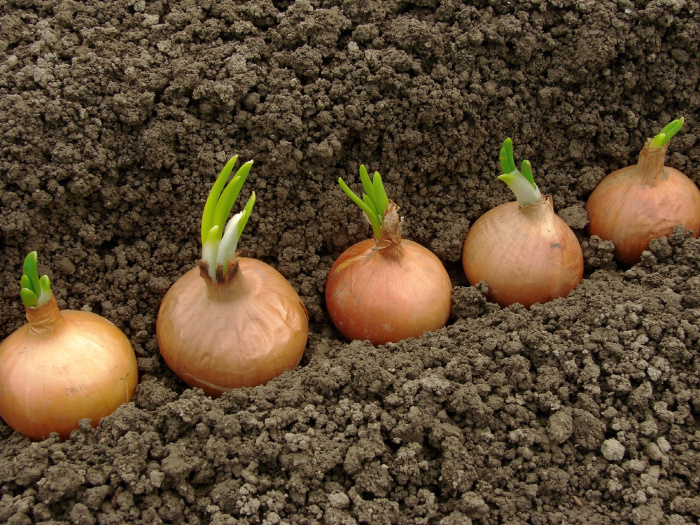
Have you ever thought of how to plant a sprouted onion? If you want your garden center to have amazing green sprouts, sometimes starting with sprouted onions is the way to go.
Keep in mind that planting sprouts won’t get you actual onions, but it will get you green sprouts. However, the sprouts will help you get seeds, which will help your planting for next year.
Planting a sprout:
- Make a hole in the ground that is as deep and wide as the onion.
- You’ll want to place the onion in the hole.
- Make sure you plant the onion in a sunny spot.
- Enjoy the green sprouts as they come up. You can use these sprouts for cooking.
There are many health benefits to using green sprouts in your cooking. It’s also nice to know that you’re not wasting any part of the plant that you’re growing.
Varieties of Onions to Plant
Keep in mind that there are a variety of onions you can plant. Just to name a few…
- Yellow onion
- Green onions
- White onions
- Vidalia onions
However, depending on where you live in the country, you may be better off planting certain onions, rather than others.
- Short-day onions – need 10-12 hours of sunlight each day to grow bulbs, require a mild winter climate, and take about 110 days to grow. Examples of short-day onions are Sweet Red Onions and Texas Sweet White.
- Long-day onions – need around 14-16 hours of sunlight each day to grow bulbs, are more apt to grow in northern regions, and need to plant in late winter or early spring. Examples of long-day onions are the Yellow Sweet Spanish and White Sweet Spanish.
- Day-neutral onions – need anywhere from 12 hours to 14 hours of sunlight each day to grow bulbs. These types of onions can be grown almost anywhere. These are sweeter onions and take about 110 days to produce. A good example of this type of onion is the candy onion.
You may not know it, but day length is super important when you are trying to form bulbs or planting onion sets. Pay attention to the frost date in your region as this will help you get the best onion crop possible. You may also find that onions are great for a raised garden bed.
How to Harvest Onions
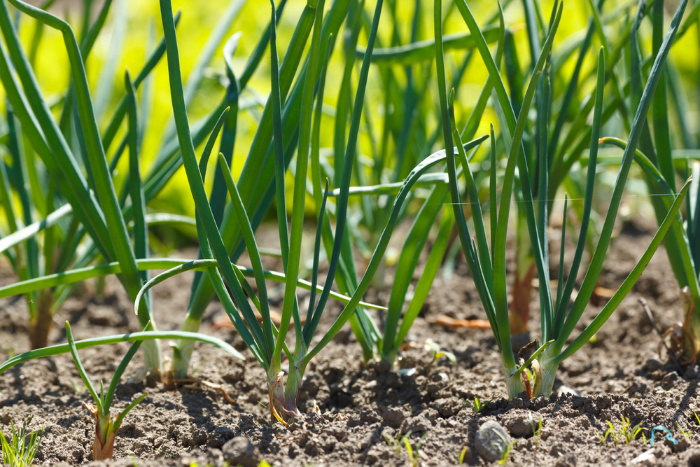
After you grow these delicious onions, you need to know how to harvest them. Onions aren’t super picky, which is nice.
There are some rules that you need to follow when it comes to harvesting onions.
You’ll want to loosen the soil around the onion bulk, so you can encourage it to dry out.
Harvest the onions before the cool weather hits.
When the tops are brown, you’ll want to pull the onions.
I think these are really good tips to go by.
I also love this little saying from the Farmer’s Almanac:
“Onion’s skin very thin,
Mild winter coming in;
Onion’s skin is thick and tough,
Coming winter cold and rough.“
Is Growing Onions Hard?
You may be wondering if growing onions is hard. Onions are popular for growing because of their hardiness. Most people would agree that they are one of the easier plants to grow because they don’t require a lot of work. So, in the grand scheme of things, growing onions is not hard.
How Long Do They Take To Grow?
You may be wondering how long it takes onions to grow. This is a simple answer. Onions take anywhere from 100 days to 175 days to grow. If you are growing green onions, those can take around 20-30 days.
When Should I Harvest Onions?
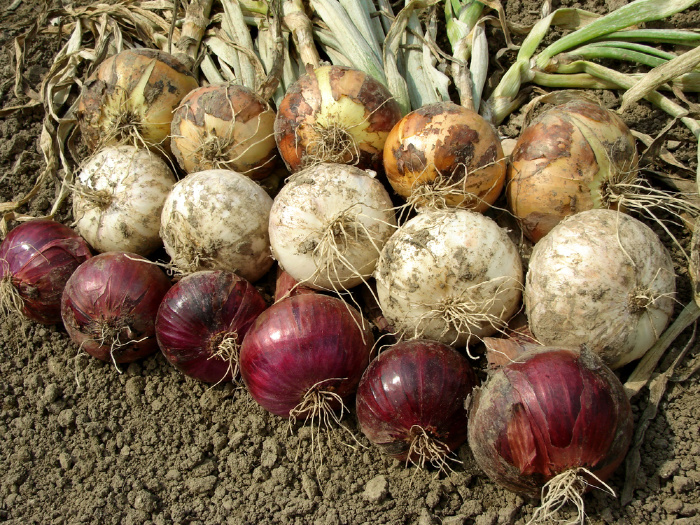
Are you curious as to when you should harvest onions? This answer is also easy. Onions can be harvested at a variety of times. No onion is going to be just the perfect size. However, you can harvest them when you’re ready. For example, you may prefer smaller bulbs over bigger ones.
If you desire to have bigger onions, then you will want to start your onions out as seeds. Seeds will take longer to grow, which gives plenty of time for them to grow big and flourish.
Also, when you see an onion starts to grow flower buds, you will want to clip those. Flower buds are a sign that your onion is preparing to split. Simply clipping those buds can prevent this.
How to Store Them
Last, but not least, you may be wondering how to store onions. When you have whole onions or shallots, you will want to store them in a cool and dark place. The room also needs to be well-ventilated.
Most people store their onions in a basement or cellar. A pantry or a garage could also be a good place for storing onions, depending on the temperature.
If you are storing peeled onions, you can put these in the fridge for about 10-14 days. Onions are also freezable, just make sure they are in the right containers. I have stored them in FoodSaver bags because they are easy to thaw in the refrigerator.
Final Word
I hope you enjoyed my post today about growing onions. There is something so gratifying when you have a garden, no matter the size. If we can produce some of our own food, we can survive any disaster, in the long run. It’s all about being prepared for the unexpected. May God bless this world, Linda
This is where I buy my garden seeds: SeedsNow

